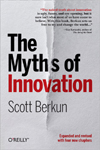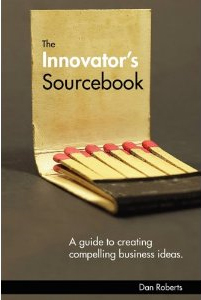In a series of posts, called readers choice, I write on whatever topics people submit and vote for. If you dig this idea, let me know in the comments, and submit your ideas and votes.
This week: Why does faith matter? Why do people think it is important to believe in God or not? (submitted by Divya)
These are many reasons faith matters (and entire books on the topic). And I’m sure my take on all of them will get me in trouble. But ok. You guys voted for it, so here we go.
 1. It’s not a choice for many. Most people on this planet mostly believe what their parents believed. For many this is fine, but for some it’s a problem, especially if you’re the kind of person who realizes if everyone only believed what their parents did, we might still be stuck in the dark ages. Or still be up in the trees in Africa, dreaming of fire.
1. It’s not a choice for many. Most people on this planet mostly believe what their parents believed. For many this is fine, but for some it’s a problem, especially if you’re the kind of person who realizes if everyone only believed what their parents did, we might still be stuck in the dark ages. Or still be up in the trees in Africa, dreaming of fire.
Religious faith matters for many reasons, but one is tradition. We are social creatures and use traditions of many kinds to form families, tribes, cultures and nations. Historically there was little separation between religion and culture (The polytheism of the ancients likely had some), meaning most traditions,and cultural binding forces, were religious in nature. And we do things our parents did, from celebrating holidays, to rooting for the same sports teams (a quasi-religion), for the simple reason it’s a way for us to feel connected. Unless there is some separation between culture and religion, people will be encouraged to share their parents beliefs – or never explore what their own beliefs are. Historically religion (e.g. faith) and culture are wound up together and hard to separate.
Faith, or even the pretense of faith often found in empty religious practice (“I’m a angel on Sunday, and a devil in-between”), can serve our sense of tradition. To say “I believe X”, or ask “Why do I believe X and not Y?” when your entire family, or town, believes Z, requires tremendous courage and self-knowledge, which few have. You’d have to be willing to risk all the things you care about based on a belief – or merely an interest in exploring what you believe – it’s safer to pretend and keep your beliefs to yourself.
2. Faith can be useful. My grandmother used to say, when she did something clumsy, “the devil made me do it.” Now that’s not faith, but nor was it an apology. Hell, she didn’t even believe in the devil (and probably not in god either), so why say something like this? To believe in something larger than yourself, whether it’s a person, a team, a nation, or a god, can be empowering. It can make you feel part of something and not feel alone. In my grandmothers case, it can also give you someone to blame. To say “God has a plan” when you know for sure you don’t have one, gives relief. And relief can be useful. Feeling connected and empowered can be useful too. But the fact that faith is useful doesn’t, on it’s own, mean the thing you have faith in is real.
There’s a saying “there are no athiests in foxholes” – but that’s an awful argument for faith. A person in a crisis is capable of many things, including some bad, self-serving or even self-destructive things. I’m sure there are few pacifists and heroes and other noble aspects of people in foxholes too. A better question might be who created the need for the foxholes, and what they claimed to believe.
3. We are creatures of belief. We are good at believing things. We think in terms of stories and will invent stories to satisfy our minds, even if those stories are damn sketchy. The history of progress can be seen as us telling increasingly better stories about how things in the world work. We will never get it completely right, and have to admit the stories we believe in now (including those about science) have flaws if we believe in the idea of progress. Either way, we believe. It’s what we do.
People make fun of the guy in the movie Memento,as if, ha ha, we’re so much smarter than he is, but we’re not. We know, from optical illusions, to Cognitive Bias, that our minds don’t work anywhere near the way we think they do. Memories are incredibly fragile and unstable, despite our intense sense of their permanence. We are masters at coming up with stories to cover up the gaps, and for inventing reasons that conveniently explain, in positive terms, why things happen the we way they do. We even manipulate what we remember. We forget that we do it (it doesn’t fit our story of ourselves), but we do.
I believe in many things, because I’m human and I’m alive. It’s likely a huge evolutionary advantage to be good at believing things. Sometimes I think I’m more successful, or happier, than some other people primarily because I’m better at believing in certain things than they are (It’s hard to prove this, but I believe it anyway). But since faith is a specific kind of belief, we are entirely capable of believing faith is good for us, regardless of whether it is or it isn’t. If that’s a belief you like, you’ll find ways to tell yourself stories that reinforce your own emphasis on faith. Given the dominant history of faith, it’s the dominant story. People who choose other beliefs are the minority and therefore have to spend more time justifying their beliefs.
4. A great starting point on faith is Deism: roughly stated, it’s the idea there is an omnipotent god like thing, but he doesn’t mess much with us, and certainly doesn’t ascribe to any particular religion (as some flavors of deism go, religions, and their miracles, are inventions). Some of the U.S. founding fathers were likely deists, or had deists notions at one time or another – possibly Jefferson, Washington, Paine – as it was a popular belief among intellectuals at the time. Deism suggests you can have a kind of faith that god exists, without any other specific beliefs a particular religion asks you to have faith in. This a powerful idea, since it separates the existence of god from the ideas of any singular religion.
Even if you think deism is silly, or offensive, follow the intellectual exercise – if deists are right, then the historic origins of any religion, and religious scripture, are worthy of investigation. And if we want to investigate, it should be done by sources other than the leaders in that religion itself (who have the most to protect). Perhaps get a council of religious inquiry, led by leaders in every major belief who wish to contribute. Or academics and professors of religious history. Suddenly there are explorations that don’t discount faith as a concept, but instead examine the pieces with a clear eye.
The notion of deism led me to study the history of many religions – and this has transformed me. I wish I had studied comparative religion as a child (See this awesome chart) – I think children would see much of the idiocy adults pursue in the name of faith as hypocritical or ridiculous (As did Monty Python in Life of Brian). There is so much shared between religions, but this rarely fits the dogmatic story you hear from within any particular religion.
5. There are non-religious kinds of faith. I think faith is everywhere. We have faith in gravity, faith in our neighbor, faith our hearts will keep beating, faith our dog won’t raid the kitchen pantry when we go to work. These kinds of faith might have more evidence to back them up in daily life than religious faith, but anyone with complete certainty about anything hasn’t been paying attention. I think most people’s reasons for believing in most things is pretty damn sketchy (See Cognitive Bias). We are all creatures of faith in many ways. I know plenty of atheists who are just as dogmatic in their atheism as the born-again Christian’s they criticize.
In summary: People who are good to each other and good to themselves are very hard to find, regardless of what scripture they recite or the symbol that hangs from their neck. I have great faith in judging people by their behavior, rather than what they claim to believe, as it’s surprising how far apart they often are.
——————————————
Please be respectful in the comments – Happy to be disagreed with or corrected, but I hope you’ll do it with love. Or at least some charm.
 The original edition was published in 2007. It was a charming little book, that disarmingly changed how people thought about ideas, so they could be more successful working with ideas on their own, at work or in life.
The original edition was published in 2007. It was a charming little book, that disarmingly changed how people thought about ideas, so they could be more successful working with ideas on their own, at work or in life.
 1. It’s not a choice for many. Most people on this planet mostly believe what their parents believed. For many this is fine, but for some it’s a problem, especially if you’re the kind of person who realizes if everyone only believed what their parents did, we might still be stuck in the dark ages. Or still be up in the trees in Africa, dreaming of fire.
1. It’s not a choice for many. Most people on this planet mostly believe what their parents believed. For many this is fine, but for some it’s a problem, especially if you’re the kind of person who realizes if everyone only believed what their parents did, we might still be stuck in the dark ages. Or still be up in the trees in Africa, dreaming of fire.


 There is something depressing about seeing one of my books high on an office shelf, in perfect condition, covered in a layer of dust . I’m thrilled they were purchased of course, but there’s sadness there too.
There is something depressing about seeing one of my books high on an office shelf, in perfect condition, covered in a layer of dust . I’m thrilled they were purchased of course, but there’s sadness there too.